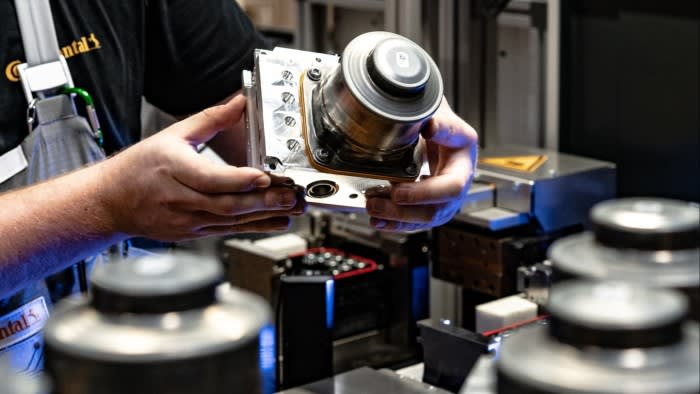Continental Considers Floating Its Core Automotive Business
Germany-based automotive supplier Continental AG is reportedly exploring the possibility of spinning off its core automotive business in a move that would see the company transition from a diversified conglomerate to a more focused player in the automotive industry. The decision comes as Continental seeks to adapt to the rapidly changing dynamics of the automotive sector, which is seeing a shift towards electric and autonomous vehicles.
Why is Continental Considering Floating Its Core Automotive Business?
Continental’s core automotive business includes products such as tires, automotive electronics, and safety systems. By spinning off this segment, Continental aims to create a standalone entity that can better capitalize on the opportunities presented by the rise of electric and autonomous vehicles. The move would enable the automotive division to have a more specialized focus and allocate resources more effectively towards developing cutting-edge technologies and solutions.
The Benefits of Floating the Automotive Business
One of the key benefits of floating the core automotive business is that it would provide Continental with the financial flexibility to invest in future growth opportunities. By becoming a standalone entity, the automotive division would have greater autonomy to pursue strategic partnerships, acquisitions, and collaborations in the rapidly evolving automotive landscape.
Additionally, spinning off the automotive business could unlock significant value for Continental’s shareholders. By separating the automotive division from the rest of the company, Continental can attract investors who are specifically interested in the automotive sector, potentially leading to a higher valuation for the standalone business.
Challenges and Risks
While spinning off the core automotive business may offer several benefits, there are also challenges and risks that Continental will need to navigate. One of the main challenges is managing the transition process effectively to ensure minimal disruption to operations and customer relationships. Continental will need to carefully plan and execute the spin-off to maintain business continuity and preserve the value of the automotive division.
Another potential risk is the impact on Continental’s overall business portfolio. By spinning off the automotive division, Continental will become more focused on its other businesses, such as the rubber and industrial divisions. It will be crucial for Continental to ensure that the remaining businesses are able to thrive and grow in the absence of the automotive segment.
Conclusion
Continental’s decision to consider floating its core automotive business reflects the company’s strategic vision to adapt to the changing dynamics of the automotive industry. By creating a standalone entity, Continental aims to position itself as a more specialized player in the electric and autonomous vehicle space, while also unlocking value for its shareholders. The success of this move will depend on Continental’s ability to navigate the challenges and risks associated with the spin-off process.
FAQs
What is Continental’s core automotive business?
Continental’s core automotive business includes products such as tires, automotive electronics, and safety systems.
How will spinning off the automotive business benefit Continental?
Spinning off the automotive business will provide Continental with the financial flexibility to invest in future growth opportunities and unlock value for its shareholders.
What are the challenges of spinning off the automotive business?
The main challenges include managing the transition process effectively and ensuring the remaining businesses are able to thrive in the absence of the automotive segment.




